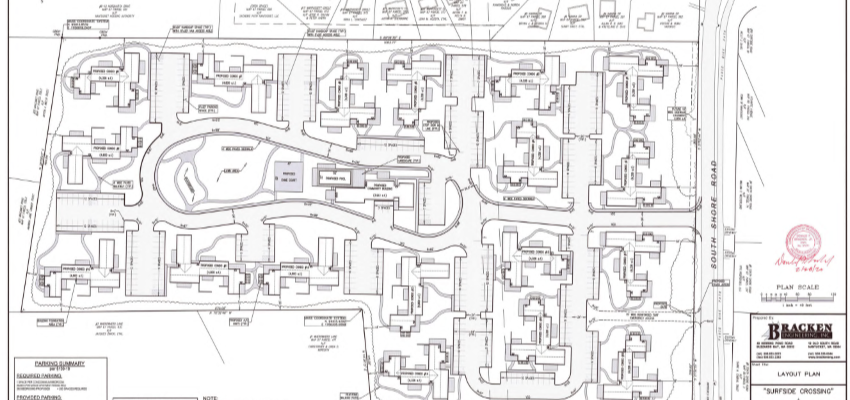This week it was revealed that Surfside Crossing developers Jamie Feeley and Josh Posner have finally filed their Environmental Notification Form (ENF) with the MA Environmental Policy Act (MEPA) office revealing dramatic changes to their development plans. The new plans revert back to their original proposal for 156 units but for all to be condominiums within 18 buildings spread out across the site. Only the minimum 25% required would qualify as affordable units. The NLC and its attorneys have been monitoring the status of Surfside Crossing’s Comprehensive Permit which we appealed, with ten citizens, to the MA Housing Appeals Committee (HAC) last July. The developers also appealed the ZBA’s decision which permitted 60 dwelling units on the 13.5 acre property off South Shore Road. According to the HAC’s statute all other required permit applications must be submitted to state agencies within 10 days making this ENF submission 8 months overdue. Their filing confirmed that they are making significant “modifications” to their plans which will also be submitted in full to the HAC.
The timing for this reveal couldn’t be worse with the HAC shut down for at least 3 weeks and MEPA attempting to conduct remote site visits as best they can while the state contends with covid-19. The developers never provided a complete filling for the ZBA to review before forcing them to issue a decision and now after waiting for months they have filed something completely different with the state agencies. The NLC will be reviewing these new plans, providing comments to MEPA, and will strongly petition the HAC to remand the matter back to the ZBA for local deliberation. The state process envisions review by the ZBA and local authorities of such a major, controversial, impactful plan on issues around water, sewer, traffic and environmental impacts. By submitting this drastic change to the HAC and seeking their approval at this level Feeley and Posner are attempting to usurp all local control and render the 18 long months that the ZBA and community spent in public hearings essentially meaningless. Herein lies the problem with Chapter 40B.
Information on the ENF application can be found in the MA Environmental Monitor.

